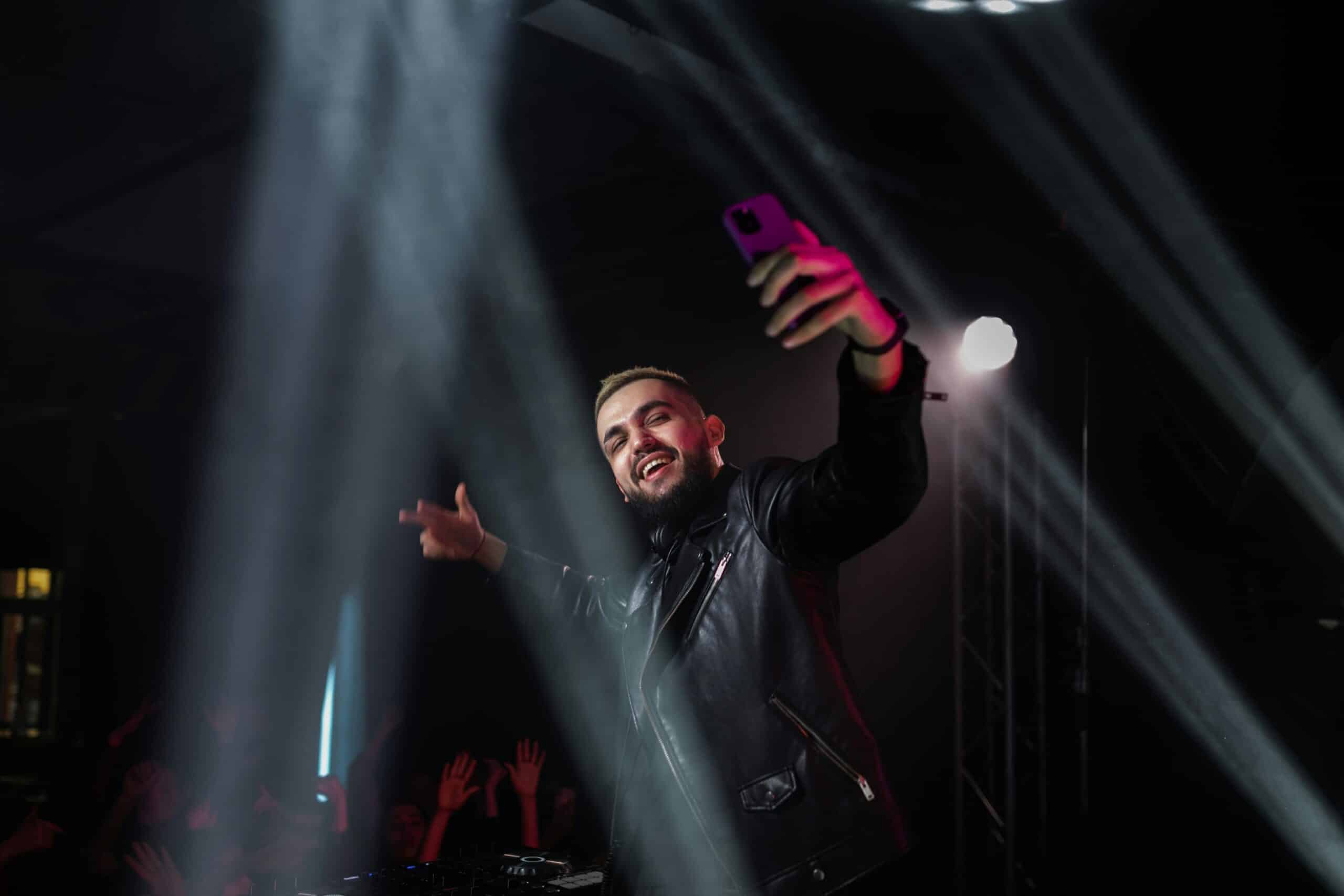The world of marketing is changing rapidly, and brands can no longer rely on traditional advertising methods alone to capture consumer attention. Today’s audiences expect more than just ads—they want interactive, engaging, and immersive brand experiences. This shift has led to the rise of experiential marketing, which focuses on creating memorable, hands-on experiences that connect consumers with brands in a meaningful way.
With the integration of cutting-edge technology like augmented reality (AR), virtual reality (VR), and artificial intelligence (AI), experiential marketing has evolved into one of the most powerful tools for brands looking to stand out in a crowded digital landscape. The ability to blend physical and digital experiences allows brands to create unforgettable brand activations, immersive storytelling, and deeper emotional connections with consumers.
In this article, we’ll explore why experiential marketing is the future of brand engagement, how augmented reality is playing a key role in this transformation, and how Towerhouse Global can help brands create impactful experiential campaigns and live events.
1. What is Experiential Marketing?
Defining Experiential Marketing
Experiential marketing is a strategy that goes beyond traditional advertising by engaging consumers in interactive, hands-on experiences that allow them to connect with a brand in a meaningful way. Rather than passively consuming content, customers become active participants in the brand story.
📌 Key Characteristics of Experiential Marketing:
✔ Immersive & Interactive – Consumers engage with brands through real-world or digital experiences.
✔ Emotionally Impactful – Experiences create lasting memories that strengthen brand loyalty.
✔ Shareable & Social-Driven – Encourages consumers to generate and share content, amplifying brand reach.
✔ Technology-Enhanced – Uses AR, VR, AI, and other emerging tech to deepen engagement.
✔ Why This Matters:
✅ Consumers are 70% more likely to purchase a product after experiencing it firsthand.
✅ Experiential marketing generates higher engagement than traditional digital ads.
✅ Brands that invest in experiential marketing build stronger emotional connections with customers.
How Towerhouse Global Can Help:
We create high-impact experiential marketing campaigns that leverage AR, live activations, and digital engagement to make brands stand out and drive deeper audience interactions.
2. Why is Experiential Marketing the Next Big Thing?
- The Rise of Immersive Technologies: Augmented Reality & Beyond
📌 Why It Matters:
- Augmented reality (AR) is transforming experiential marketing by bridging the gap between digital and real-world interactions.
- AR-powered brand activations allow consumers to visualize products in real-time, interact with digital overlays, and engage with brands in a whole new way.
📌 Example:
- Gucci’s AR Sneaker Try-On – Customers can virtually try on sneakers using AR filters before making a purchase, enhancing the shopping experience.
✔ Why This Works:
✅ Reduces purchase hesitation and increases confidence in buying decisions.
✅ Creates interactive brand moments that encourage social sharing.
✅ Enhances personalization by allowing customers to customize and visualize products.
How Towerhouse Global Helps:
We design AR-powered experiential activations that allow brands to create interactive consumer experiences that drive engagement and conversions.
- Experiential Marketing Drives Deeper Emotional Connections
📌 Why It Matters:
- Traditional digital ads can be easily ignored, while experiential marketing creates moments that leave a lasting impression.
- Emotional connections lead to higher brand recall, increased customer loyalty, and long-term engagement.
📌 Example:
- Coca-Cola’s AR Holiday Campaign – Coca-Cola used AR-enhanced packaging to allow customers to unlock personalized holiday messages and animations when scanned with a phone.
✔ Why This Works:
✅ Creates an emotional connection through personalized experiences.
✅ Encourages consumers to engage with the brand beyond a simple purchase.
✅ Turns packaging into an interactive brand activation.
How Towerhouse Global Helps:
We create personalized experiential marketing campaigns that enhance brand storytelling and consumer engagement.
- The Power of Social Media & Shareable Experiences
📌 Why It Matters:
- Consumers love to share unique and exciting experiences on social media.
- Brands that invest in experiential activations encourage organic, word-of-mouth marketing.
📌 Example:
- Pepsi Max’s AR Bus Stop Ad – Pepsi installed AR screens at bus stops, creating interactive brand moments where consumers saw unexpected illusions like UFOs and tigers appearing in real life.
✔ Why This Works:
✅ Turns everyday spaces into viral marketing moments.
✅ Encourages social sharing, expanding brand reach.
✅ Creates a sense of surprise and excitement that resonates with audiences.
How Towerhouse Global Helps:
We develop shareable brand activations and live events that encourage user-generated content and organic engagement on social platforms.
- The Shift Toward Hybrid & Phygital Experiences
📌 Why It Matters:
- Brands need to combine digital and physical experiences to maximize engagement.
- Hybrid experiential marketing strategies allow brands to connect with audiences both in-person and online.
📌 Example:
- IKEA’s AR Shopping App – Customers can use AR to visualize furniture in their homes before making a purchase, merging digital and physical retail.
✔ Why This Works:
✅ Enhances the online shopping experience with real-world visualization.
✅ Bridges the gap between e-commerce and physical retail.
✅ Increases consumer confidence, leading to higher conversions.
How Towerhouse Global Helps:
We create phygital experiences that blend digital and in-person interactions, ensuring maximum reach and impact for brand activations.
3. The Future of Experiential Marketing
📌 Emerging Trends to Watch:
✔ Metaverse & Virtual Brand Activations – Expanding experiential marketing into virtual environments.
✔ AI-Powered Personalized Marketing – Using AI to tailor brand experiences to individual consumers.
✔ Holographic & 3D Brand Experiences – Using 3D projections and interactive displays to create futuristic brand activations.
📌 Example:
- Nike’s AR Gamification Campaign – Nike created AR scavenger hunts and interactive digital challenges to engage customers and drive store traffic.
✔ Why This Matters:
✅ Brands that embrace immersive experiences will stay ahead of competitors.
✅ Interactive experiences drive stronger emotional connections and customer loyalty.
✅ Experiential marketing is the future of digital and live brand engagement.
4. How Towerhouse Global Can Help Brands Implement Experiential Marketing
📌 Our Services:
✔ Augmented Reality Brand Activations – Creating immersive, interactive experiences that captivate audiences.
✔ Live Event Production & Hybrid Experiences – Designing high-impact brand activations that blend digital and real-world interactions.
✔ AI-Powered Personalization & Gamified Marketing – Enhancing marketing strategies with AI-driven engagement tools and gamification.
📩 Contact Towerhouse Global today to develop a high-impact experiential marketing campaign that captivates audiences and transforms brand engagement! 🚀
Final Thoughts: Why Experiential Marketing is the Future
✔ Experiential marketing turns brand interactions into memorable experiences.
✔ Augmented reality and immersive technologies create deeper consumer engagement.
✔ Brands that invest in experiential marketing will lead the next era of customer engagement.
At Towerhouse Global, we specialize in:
✅ Developing cutting-edge experiential marketing campaigns.
✅ Creating interactive brand activations using AR, AI, and immersive tech.
✅ Helping brands connect with audiences through live events and digital engagement.
Ready to elevate your marketing strategy? Contact Towerhouse Global today!






